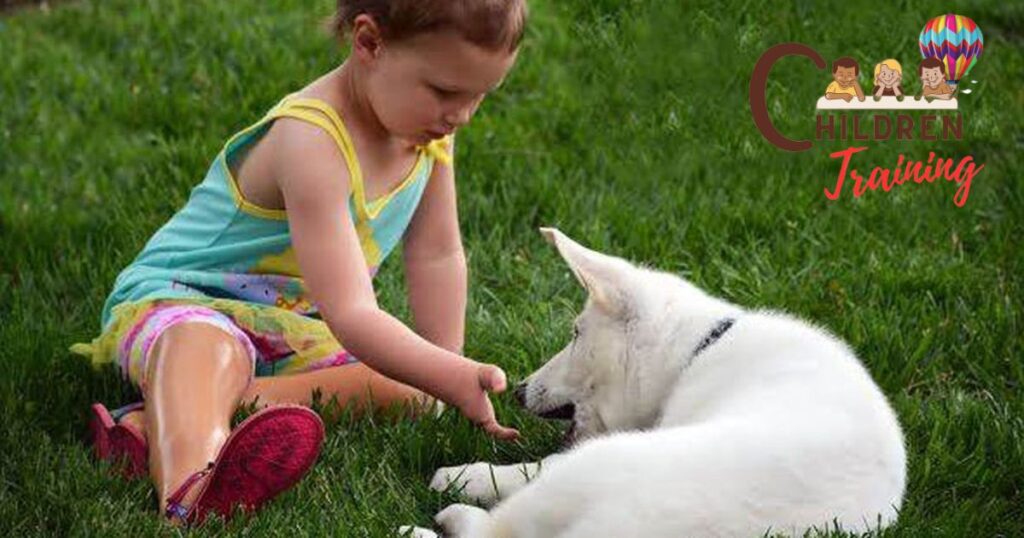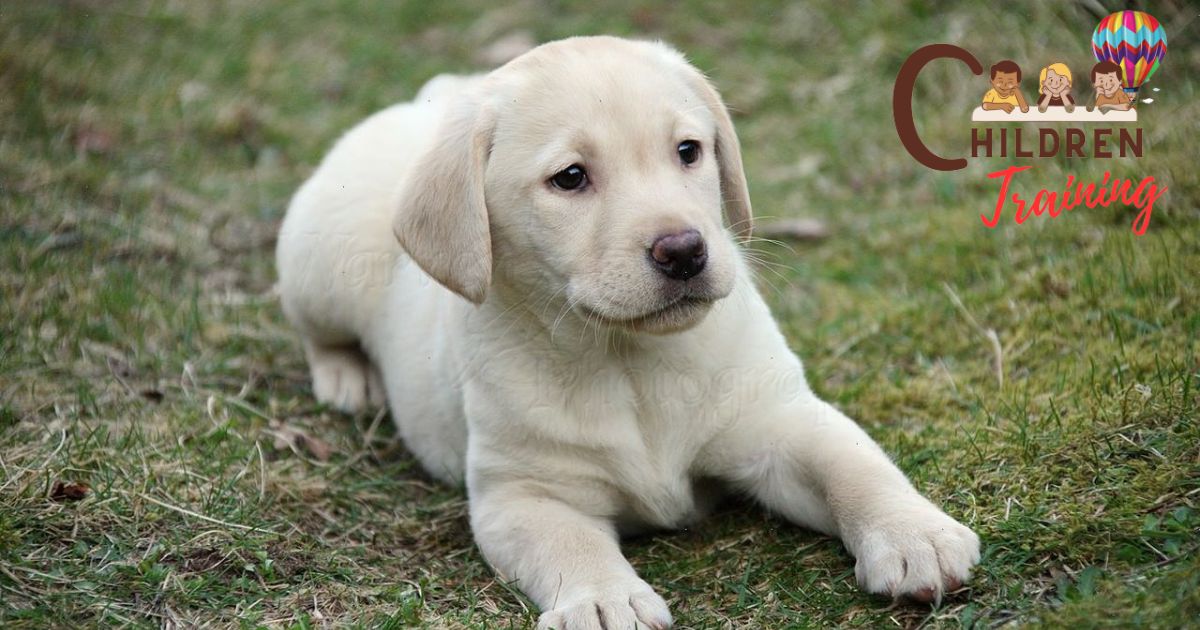Training a 9-week-old puppy can be a rewarding yet challenging experience. This crucial stage in a puppy’s life lays the foundation for their future behavior and development. If you’re a new puppy owner or have recently welcomed a furry friend into your home, you might be wondering where to start. This comprehensive guide will provide you with the knowledge and techniques to effectively train your 9-week-old puppy. Whether you’re tackling basic commands, housebreaking, or socialization, we’ve got you covered. So, let’s embark on this exciting journey together and help your puppy become a well-behaved and happy companion.
Understanding the Importance of Training

The Benefits of Early Training
Training your 9-week-old puppy is not just about teaching them commands; it’s about instilling good behavior, social skills, and building a strong bond with your furry friend. Early training offers several key benefits:
- Behavioral Development: Early training helps prevent and address behavioral problems, such as aggression, fear, and anxiety.
- Safety: Training your puppy to respond to basic commands ensures their safety and prevents accidents.
- Bonding: Training is an opportunity to build trust and a strong connection with your puppy.
- Socialization: Training helps your puppy become well-adjusted and comfortable around people, other animals, and various environments.
Setting Realistic Expectations
It’s important to have realistic expectations when training a 9-week-old puppy. Puppies have short attention spans and may not grasp commands as quickly as older dogs. Patience and consistency are key. Keep in mind the following:
- Puppies have limited bladder control, so housebreaking takes time.
- Short training sessions are more effective than long ones.
- Positive reinforcement works better than punishment.
Basic Training Commands
Basic commands are the building blocks of a well-behaved dog. Here are some fundamental commands to start with:
Sit
Teaching your puppy to sit is a great starting point. Follow these steps:
- Hold a treat in front of your puppy’s nose.
- Slowly raise the treat above their head, which will make them sit naturally.
- Say “sit” as soon as they sit down.
- Reward with the treat and praise.
Stay
The “stay” command ensures your puppy remains in one place until you release them. Here’s how to teach it:
- Have your puppy sit.
- Hold your hand up, palm facing them, and say “stay.”
- Take a step back and wait a moment.
- If they stay, reward and praise them.
- Gradually increase the distance and duration.
Come
Teaching your puppy to come when called is essential for their safety. Use these steps:
- Kneel down and call your puppy’s name.
- When they come to you, say “come” and reward them.
- Gradually increase the distance and use treats to reinforce the behavior.
Down
The “down” command teaches your puppy to lie down. Follow these steps:
- Start with your puppy in a sitting position.
- Hold a treat in front of their nose.
- Lower the threat to the ground in a straight line while saying “down.”
- When they lie down, reward them and offer praise.
Leave it
“Leave it” is a valuable command to prevent your puppy from picking up or chewing on something harmful. Follow these steps:
- Place a treat in your hand and show it to your puppy.
- Say “leave it” and close your hand to prevent them from getting the treat.
- Wait for them to stop trying to get the treat, then reward and praise.
Heel
Teaching your puppy to walk nicely on a leash is crucial for outings. Here’s how to teach the “heel” command:
- Begin with your puppy on a leash.
- Start walking and say “heel” as they walk beside you.
- Reward them when they maintain the position.
Housebreaking Your Puppy
Housebreaking, also known as potty training, is one of the first challenges puppy owners face. Here are some tips, including guidance on “How To Potty Train A Havanese,” to make the process smoother:
Crate Training
Crate training is a valuable tool for housebreaking. Follow these steps:
- Choose an appropriately sized crate.
- Use the crate to establish a regular potty schedule.
- Take your puppy outside after waking up, eating, or playing.
- Reward and praise them for going potty outside.
Establishing a Routine
Consistency is key to successful housebreaking. Create a routine for your puppy:
- Feed them at regular times.
- Take them outside first thing in the morning and before bedtime.
- Schedule short potty breaks during the day.
Positive Reinforcement
Use positive reinforcement to reward your puppy for good behavior. Consider creating a chart to track their progress and celebrate their successes.
| Date | Successful Potty Breaks | Rewards |
| Day 1 | 5 | Treats |
| Day 2 | 4 | Praise |
| Day 3 | 6 | Toys |
Dealing with Accidents
Accidents are inevitable, especially with young puppies. When they occur:
- Clean the area thoroughly to remove the scent.
- Do not scold or punish your puppy; they won’t understand.
- Adjust your routine to prevent future accidents.
Socialization
Socialization is a critical aspect of training that helps your puppy become a well-adjusted adult dog. Here’s what you need to know:
Importance of Socialization
Early socialization helps your puppy:
- Develop social skills and manners.
- Build confidence and reduce fear.
- Adapt to various environments.
Safe Socialization Practices
Practice safe socialization by:
- Introduce your puppy to people, dogs, and other animals gradually.
- Choosing controlled environments to minimize stress.
- Monitoring your puppy’s reactions to new experiences.
Exposing Your Puppy to Various Situations
Expose your puppy to a variety of experiences, including:
- Different people (children, adults, the elderly).
- Various surfaces (grass, concrete, sand).
- Different sounds (traffic, vacuum cleaner, doorbells).
Handling Fear and Anxiety
If your puppy shows fear or anxiety during socialization:
- Stay calm and reassure them with a soothing voice.
- Gradually expose them to the source of fear in a positive way.
- Seek professional help if the fear persists.
Health and Wellness
Maintaining your puppy’s health and wellness is vital for their overall development. Here are some key aspects to consider:
Puppy Vaccinations
Ensure your puppy receives the necessary vaccinations to protect them from diseases. Consult your veterinarian to establish a vaccination schedule.
Nutrition
Feed your puppy a balanced diet appropriate for their age and breed. High-quality puppy food provides essential nutrients for growth.
Exercise
Puppies have plenty of energy, so regular exercise is important. Playtime, short walks, and interactive toys help burn off excess energy.
Grooming
Grooming is not just about aesthetics; it’s also about health. Regular grooming keeps your puppy clean and helps you detect any health issues early.
- Brush your puppy’s coat regularly.
- Clean their ears and trim their nails as needed.
- Bathe them when they get dirty, but not too frequently.
FAQs
When should I start training my 9-week-old puppy?
You can start basic training as soon as you bring your puppy home.
How long should training sessions be for a 9-week-old puppy?
Keep training sessions short, around 5-10 minutes, as puppies have short attention spans.
What’s the most important command to teach my 9-week-old puppy first?
Begin with “sit” as it’s an essential and easy-to-learn command for puppies.
Conclusion
Training a 9-week-old puppy is a crucial step in building a strong and positive relationship with your new furry family member. While it may seem challenging at times, patience, consistency, and love will go a long way in helping your puppy become a well-behaved and happy companion.
Starting early is key, as puppies are like sponges, eager to learn and adapt. Remember to keep training sessions short and enjoyable, taking into account your puppy’s short attention span. Focus on basic commands like sit, stay, come, and down, as these provide the foundation for more advanced training.
Housebreaking is another essential aspect of training, and crate training can be a valuable tool in this process. Consistency in establishing a routine and using positive reinforcement are essential for successful housebreaking.
Socialization is crucial for your puppy’s overall development, helping them become confident and well-adjusted in various situations. And don’t forget about their health, with regular vet visits, a balanced diet, exercise, and grooming.
In the end, training your 9-week-old puppy is an investment that will lead to a lifetime of joy and companionship. Embrace the journey, celebrate small victories, and cherish the bond you’ll create with your four-legged friend.










